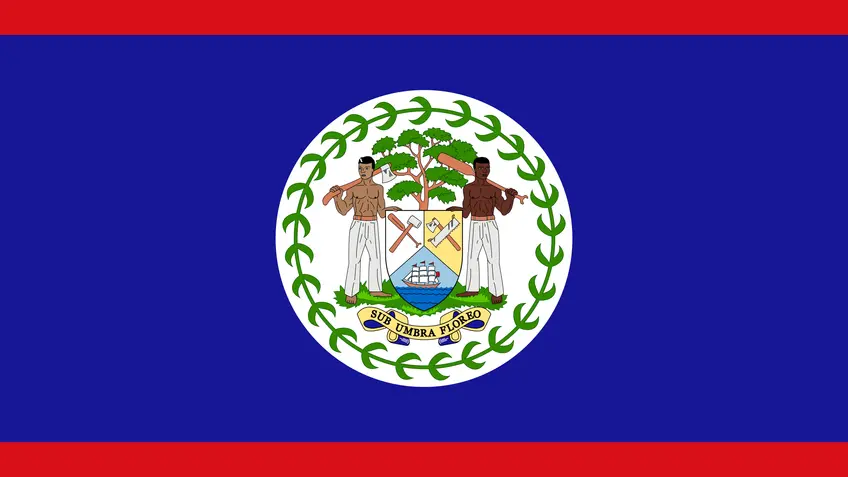Belize’s Updated NDC: Key Successes and Lessons Learned
“I am proud to present an ambitious NDC that is driven by broad stakeholder engagement and rooted in science and national policy.” - Dr. Lennox Gladden, Chief Climate Change Officer, Ministry of Sustainable Development, Climate Change, and Disaster Risk Management and UNFCCC Focal Point
The Caribbean country of Belize updated its NDC through a highly consultative, whole-of-society process. Government agencies, civil society, research institutions, vulnerable populations, and the private sector all contributed, despite unprecedented social distancing conditions imposed by COVID-19. Throughout the development process, the NDC Partnership played a critical role.
As a member of the Climate Ambition Alliance and the High Ambition Coalition, Belize is committed to decisive climate action. Even though it is a carbon sink, with a positive net impact on the global climate when considering the forestry sector, Belize is still committing to enhance its GHG emission efforts. Sectoral ambition raising includes increasing AFOLU-related GHG removals by 63 percent and achieving 75 percent renewable energy in electricity generation by 2030.
Belize´s enhanced NDC also adds an array of adaptation actions designed to build critical systems and resilience in sectors, including land use, human settlements, infrastructure, forestry, and biodiversity. Additionally, the revised NDC includes new gases (methane and nitrous oxide), adds specific implementation time frames, and includes details on NDC financing and monitoring.
The updated NDC and its Implementation Plan are the culmination of a collaborative process that is significantly strengthened from the 2016 NDC. Throughout the NDC update process, engagement with a technical group of sector leads across government validated progress, ensuring that mitigation and adaptation targets were informed by scientific data and that activities aligned with national policies, strategies, and action plans. At every stage, the process included relevant societal sectors, with important representation from indigenous peoples. Thus, the updated NDC includes stewardship of local community and indigenous peoples’ lands as part of a sustainably managed landscape to assist in achieving mitigation targets.
In February 2020, Belize started receiving support through the NDC Partnership’s Climate Action Enhancement Package (CAEP). Under this unique offering, the Partnership supported Belize in developing an updated NDC; an NDC implementation plan; a financial strategy; and a measurement, reporting, and verification (MRV) tool for the energy sector. The NDC Partnership also provided general oversight and guidance to the entire process and supported an in-country Facilitator assigned to the National Climate Change Office (NCCO) in the Ministry of Sustainable Development, Climate Change, and Disaster Risk Management.
The NDC Partnership and its members played a key role in Belize’s NDC update process. IRENA, Climate Technology Centre & Network, RMI, Vivid Economics, and the UNFCCC’s Regional Collaboration Center in Grenada provided technical support to project GHG Business as Usual (BAU) emissions, model mitigation scenarios, align climate with national and sectoral development priorities, identify potential climate technologies, cost NDC activities, and improve the energy sector MRV system.
Furthermore, UNDP, WWF, Pew Charitable Trusts, and the Initiative for Climate Action Transparency (ICAT) also assisted the revision process. They are contributing to the integration of blue carbon and coastal resilience into the revised NDC, the elaboration of the Long-Term Low-Emissions Development Strategy, and the NDC’s national MRV system. The Commonwealth Secretariat is also supporting development of a Climate Finance Strategy. All international entities worked together; NCCO provided coordination with Partnership support.
Moving forward, the Partnership is supporting development of an NDC implementation plan that is led and coordinated by Belize’s NCCO with advice and guidance from the high-level National Climate Change Committee. The NDC implementation plan sets out annual targets for NDC action delivery between 2021 and 2025, funding requirements, and responsible parties for activities required to deliver the NDC actions and targets. A series of evaluation systems will also be put in place to monitor annual progress against targets and actions. A climate finance working group was established under the Climate Change Committee, providing guidance to the national efforts to access, manage, and effectively use climate finance.
Belize’s NDC updating process has yielded positive results and other countries may benefit from some of its key lessons learned. One such lesson is the need to build national capacity across government agencies to better understand the concepts required to mainstream climate change and the NDC in other national policy-driven activities. Building national capacity to conduct future GHG modeling activities to ascertain the mitigation impacts of sector-based projects and programs is also necessary.
Belize’s experience also highlights the importance of climate finance-related information, such as the government’s national budget allocation to climate action across sectors, when developing financing strategies for the NDC and broader climate action. It also demonstrates that making the national datasets that support NDC updating processes available to stakeholders is crucial, as it allows these stakeholders to plan precise and relevant measures to accompany the Government´s vision.
This blog post was written by Gina Young, NDC Partnership Facilitator, and Belize National Climate Change Office, with support from the NDC Partnership Support Unit
